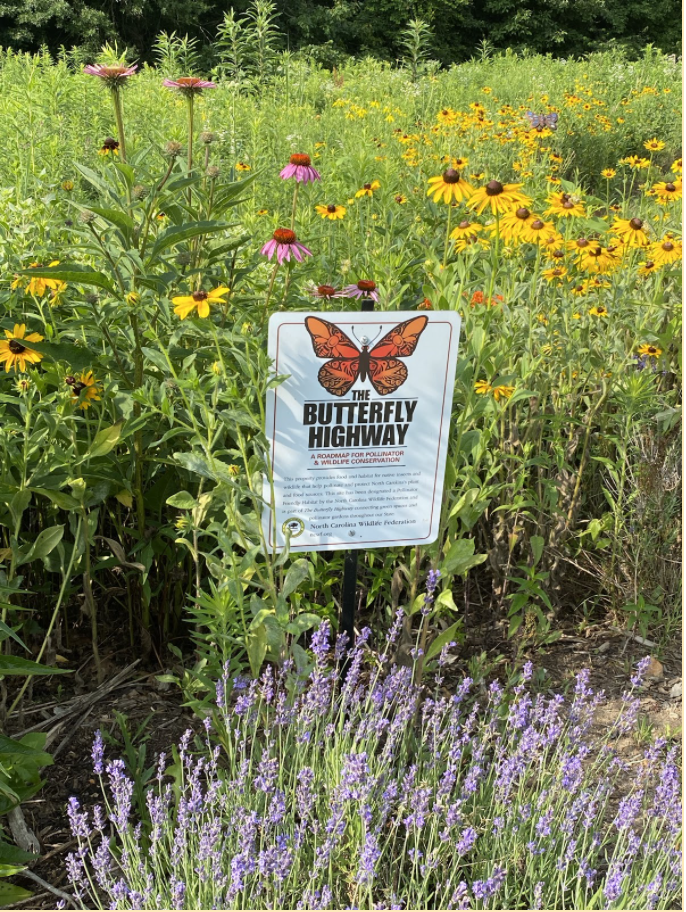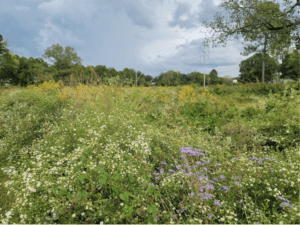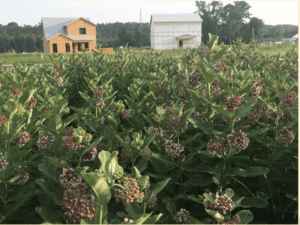What’s the Butterfly Highway Buzz?


Photo by Kate Greiner at Chantilly Ecological Sanctuary.
The perils facing pollinators are not a secret. For years, scientists have documented a decline in pollinators as a result of habitat loss, pesticide use, climate change and more.
The Butterfly Highway is a statewide conservation restoration initiative of the North Carolina Wildlife Federation aimed to restore and conserve native pollinator habitats. From a balcony to a several-acre field, there is an opportunity to support pollinators near you.
The most common pollinators in North Carolina are bees, butterflies, moths, wasps, flies, beetles and hummingbirds. Despite the varying types of pollinators, they all need the same things that humans need in order to survive: food, water, cover and places to raise young.
From a container garden to farmland, some of the easiest native plants to grow for pollinators are native flowers. Black-eyed Susan (Rudbeckia spp.), milkweed (Asclepias spp.), goldenrod (Solidago spp.) and asters (Symphyotrichum spp.) are among some of the best plants for pollinators and the easiest to grow. Not only do they provide floral resources, but many pollinators use these plants as larval host plants.

Photo by Madison Ohmen of a former milkweed patch lost to development.
Whether you have full sun or full shade, there is a native plant that can provide habitat for pollinators. Our native redbud (Cercis canadensis) naturally grows in partial shade, but will also provide a plethora of nectar for early emerging pollinators in the spring and is the host plant for as many as 12 different butterfly and moth species.
Become part of the Butterfly Highway today and take the free pledge to support pollinators. If you feel inspired to start your own butterfly garden, a native seed packet is available for purchase on our website and is filled with milkweed, black-eyed Susan, coneflower and more.
Education is vital to saving pollinators. You can purchase an educational sign to put up in your registered Butterfly Highway site for your friends and neighbors to read and learn how to support pollinators in their own backyard.

